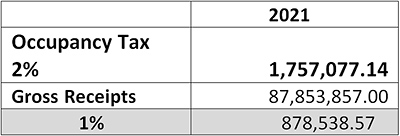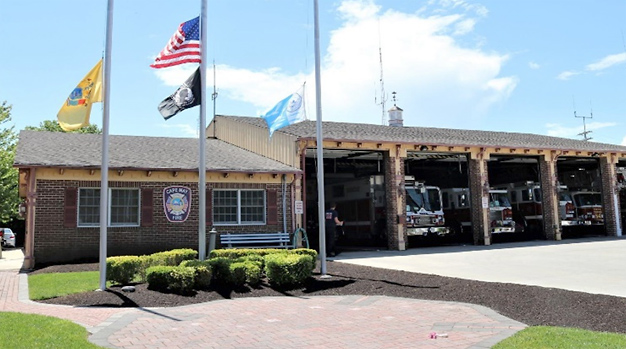
|
NOVEMBER 2021 E-NEWSLETTER Like it or not Cape May is changing. It's becoming harder to ignore the reality that Cape May is shape-shifting from a quaint Victorian village into a commercial enterprise. Consider these facts:
TRANSPARENCY – WHAT GOOD IS IT? At its Reorganization Meeting last January, the Cape May City Council promised to bring transparency to the workings of our city government. Taxpayers and residents deserve and should expect a clear view of how policy is made and how our money is spent. In a town like Cape May where so few taxpayers actually reside, a variety of options for access to the workings of governments is essential for transparency. Policy and spending are generated from a variety of municipal bodies. Council sets policy, raises revenue, and spends money. Statutory boards and commissions such as Planning, Zoning, HPC, Environment and Shade Tree control what we can do with our property. Advisory Committees such as MTRAC, Beach Safety, and Bike and Pedestrian Safety study issues and recommend policy to City Council. All of these bodies meet regularly, and their schedules are posted on the City Website. These postings include agendas, attachments and documents to be discussed at those meetings. CAPE MAY CITY MEETINGS & AGENDAS In addition, these meetings are Live Streamed, an essential service for interested taxpayers who cannot attend in person. These meetings can be viewed live or anytime at your leisure because the website retains the video recording. The City Website also lists the emails of the Council members and the city officials for any taxpayer or resident who wishes to communicate directly to our policy makers. So far, they've been true to their word. They're delivering on Transparency...... but is anybody looking? A look at the numbers recorded on the City Website for Live Stream participation seems to indicate that the answer to that question is: Not Many. There have been a few technical problems with the current outdates Live Stream system and a few meetings have not been recorded properly. The City is switching to a new and hopefully more reliable system by December 20. Since January there have been 92 recorded public meetings of nine bodies responsible for raising revenue, spending public dollars, and crafting public policy. You can watch any or all of them whenever you want. The numbers seem to indicate a distinct lack of interest. Fifteen of these meetings had single digit viewership. The most important body among these is the City Council. Their 27 recorded meetings were viewed by an average of 315 people, with audiences ranging from 1109 to 1 member of the public watching.
Access to information and opportunities for input are available, either directly from the City or through organizations like the TPA. And yet, given that there are over 3,800 Cape May City property taxpayers across the country, and a similar number of people residing in the City, the obvious question arises: How many of us know, or care to know, how our money is spent or how the policies affecting all of us are developed? How many of us really want to see that process? Hot issues like Council Resignations and Jetty Motels get some spikes in interest, but for most issues it's crickets. When that happens, all that remains is to complain about some policy we could have had a say in adopting.
OCCUPANCY TAX - UPDATE: State law requires a 5% state tax on the gross receipts of tourist accommodations like hotels and motels, as well as Transient Internet Rentals. The law also permits a municipality to collect an additional 1 to 3 percent for local purposes. Since 2004 Cape May has opted to collect just 2% of this important source of annual revenue, and, since 2018, has not applied any local percentage on transient rentals.
That has all changed. At the urgings of TPA and the Municipal Taxation and Revenue Advisory Committee (MTRAC) which proposed the ordinance, City Council has increased the local tax by 1% to a full 3% and has applied that 3% to all short-term rentals through internet sites such as AirBnB. This change will take effect on 1/1/2022 and has no effect on revenue for 2021. This tax is a significant source of revenue to support a wide variety of tourism and recreation related services as well as the operation of Convention Hall. How significant:
TRANSPARENT BUDGETING: Currently a significant amount of general revenue is used for operational support of the three user funded utilities within the city. These utilities, Water/Sewer, Tourism, and the Beach, each have their own funding sources which are intended to support services to the users of each utility and avoid an overburden on property taxpayers. The Municipal Taxation and Revenue Advisory Committee (MTRAC) recently recommended to City Council that the coming budget identify the service cost in each of these utilities currently funded by the General Fund and move these Taxpayer funded costs to the User Fees of each utility. To date, Council has taken no action on this recommendation. The MTRAC Recommendation and PowerPoint presentation are posted on the TPA Website.
BEACH SAFETY: The beach is the single most important resource in making Cape May such a desirable place to live, vacation and visit. The beach we have is a product of decades of regular sand replenishment. Recent discussion has surrounded the safety of both this resource and methods used to maintain it. There will be significant fiscal implications resulting from the resolution of these discussions. The City maintains a Beach Safety Advisory Committee and is planning to soon make changes in both the mission and the membership of that committee. A recent article in the Cape May Sentinel presents an interesting overview of these issues. THE CAPE MAY SENTINEL: SAFE TO GO IN THE WATER TPA recommends that taxpayers give this article a careful reading and keep a close eye on the agenda and the recommendations the Beach Safety Advisory Committee.
UPDATES: Fire House:
Firefighter Union Contract Negotiations: No progress announced to date. (See TPA Analysis Parts 1 and 2 is September E-newsletters. Also posted of TPA Website)
Police Union Contract. Settled November 10, 2021. Details in our next E-newsletter.
City Council has confirmed that all temporary regulations regarding outdoor drinking and dining will terminate on December 31, 2021.
As of December 7, City Council has once again postponed consideration of a comprehensive ordinance concerning the short-term rental of residential properties. |
Return to News & Information Previous Newsletters:
2024 2023 2022 September 2021
November 2020
December
|
|
|
|
|
|
|
Site
Revised:
October 14, 2024 |
|
|




